CISAC @ 2019 ALAI Congress on Collective Management
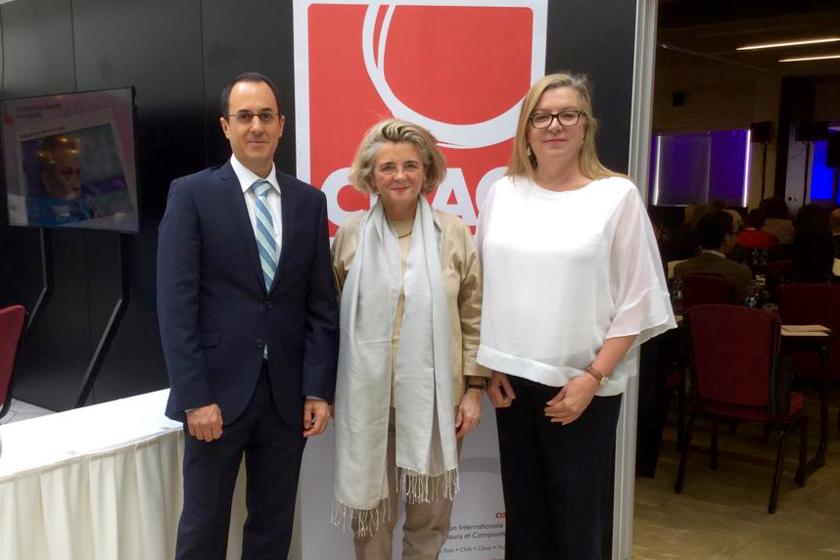
One of the most influential legal conferences placed collective management at the heart of its programme this year. The 2019 ALAI Congress, which took place in Prague on September 19-20, was dedicated to examining the most important topics and emerging business models in the collective management of rights.
This year, CISAC was the main partner of ALAI with many CISAC member societies participating in panel discussions.
ALAI (the International Literary and Artistic Association) is an independent body dedicated to copyright and authors’ rights. Set up by Victor Hugo in 1878, ALAI brings together worldwide copyright experts from academia, governments, international agencies and private practice. ALAI plays a key role in influencing domestic and international copyright laws. It has over 60 national groups and each year holds an annual congress dedicated to a particular topic.
See the photo gallery.
The 2019 congress was hosted by the Czech ALAI group and was devoted to collective management, five years after the adoption of the EU Directive on Collective Rights Management. Nearly 400 participants attended the two-day congress.
Speakers included WIPO Deputy Director Sylvie Forbin, European Union IP Office Executive Director Christian Archambeau, ALAI President Frank Gotzen and Professor Mihály Ficsor, Chairman of the Central and Eastern Europe Copyright Alliance (CEECA). CISAC member societies ADAGP, AMRA, Artisjus, GEMA, JASRAC (also representing CISAC’s Regional Asia-Pacific Committee), SACD, SACEM and SOCAN took part in plenary discussions.
CISAC Director General Gadi Oron delivered the keynote speech on “Collective management of rights in a transforming market”, focusing on CMOs’ response to technological developments. He explained how the digital market has led to rapid transformation of the CMO sector, but at the same time reiterated the importance of collective administration of rights.
Oron gave insights from a historical perspective, recounting how societies have adapted in order to respond to advances in technology. In his address, he focused on the transformation in the services provided by CMOs, but also on the continuity in the core goals and principles of collective management over the past 200 years. The full keynote can be read here.
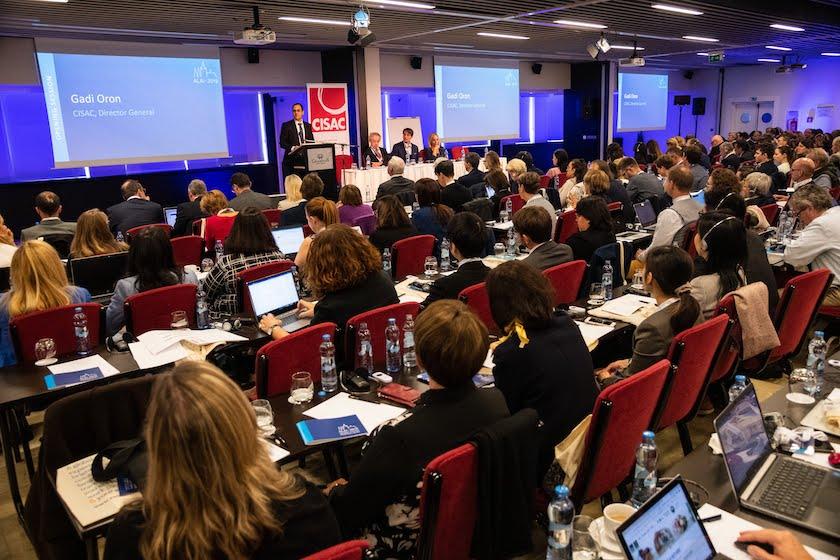
Romana Matanovac Vučković, of the University of Zagreb’s Faculty of Law, gave an extensive overview of collective management of rights. She compared the models of Europe and the United States, focusing on the structure, accreditation and tariffs among authors’ societies.
The first plenary dived into the relationship between competition law and the collective management of rights. The discussion focused on the balance struck between the two in the United States and Europe, with examples including European Court of Justice decisions, such as the “simulcasting decision”, and the “CISAC case”. SACEM Legal Department Director Caroline Bonin emphasised that the specific characteristics of collective management justify exclusivity for management societies vis-à-vis users.
The second plenary, on setting and litigating tariffs, saw the participation of a major digital service. Netflix Director Global Music, Jeanette Dietrich, pointed to the complexity licensing music in audiovisual productions. She outlined the scope for improvement in matching data, distributions, state supervision, tariff setting and CMO transparency.
CISAC member SOCAN Associate General Counsel Andrea Kokonis detailed Canada’s current legislative reform efforts during the panel.
Turning to legislation, the work of the past five years in implementing the EU Directive on Collective Management of Copyright was examined. European Commission DG Connect Legal Officer Véronique Delforge gave a summary on the Directive’s implementation process.
Next on the agenda, a presentation by GEMA General Counsel Tobias Holzmüller detailed how a model based on national blanket licensing was transformed into a new model based on Pan-European licensing. He emphasised that developing online licensing hubs is key in order to help meet the licensing requirements of users.
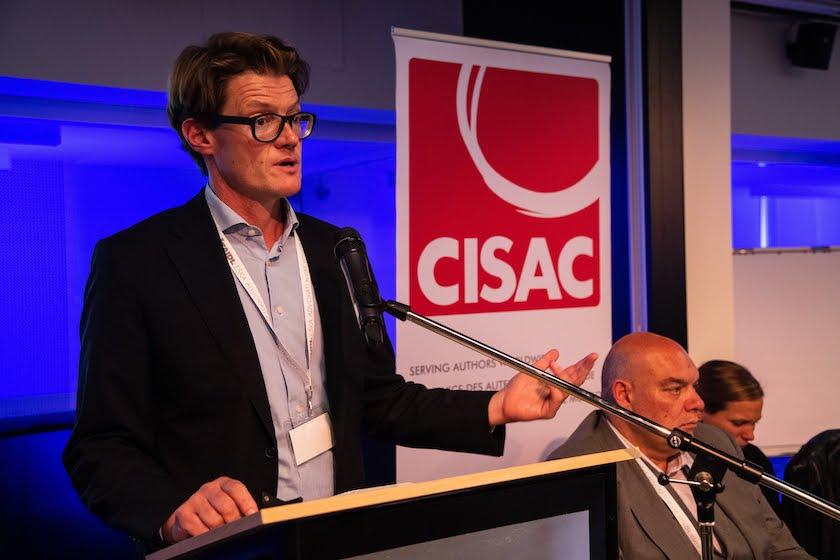
Artisjus External Counsel Gábor Faludi spoke about the provisions in the new EU Copyright and Broadcasting Directives, which allow for new forms of extended collective management. Massimo Scialò of Soundreef detailed the new business model of an independent management entity working worldwide to manage rights directly or through representation agreements.
WIPO’s Sylvie Forbin focused on the importance of the collective management system for creators around the world. Using exclusive data from CISAC’s Global Collections Report, she noted the varying levels of development of societies in numerous regions while highlighting WIPO’s efforts to help societies respond to challenges arising in different markets.
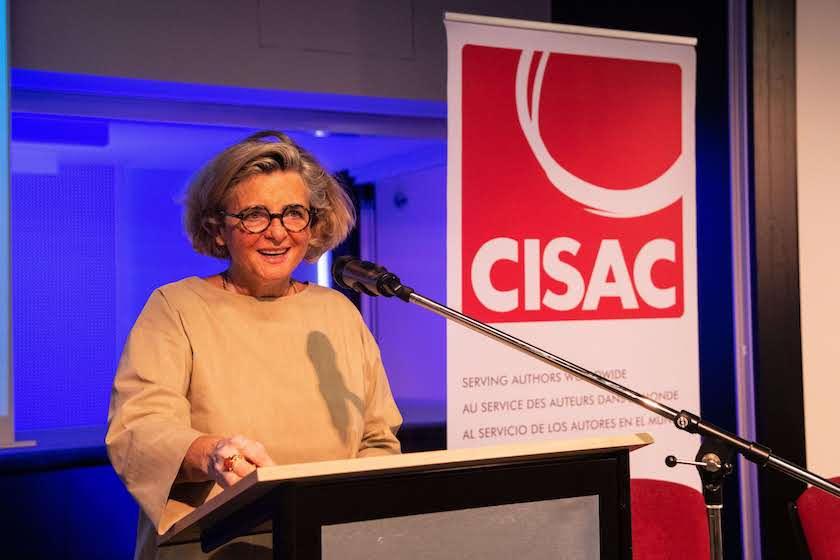
In a panel dedicated to technological aspects of collective administration, SACEM’s Head of International Legal Affairs, Charlotte Aïdan, described the increasing complexity of the digital world and the way in which the French society has been responding to it. She focused on the tasks of identification of works and distributions and described tools such as the U-right Platform. Diving deeper into the issues, Tomas Ericsson of AMRA highlighted the complexity of rights clearance and the high costs of processing usage data.
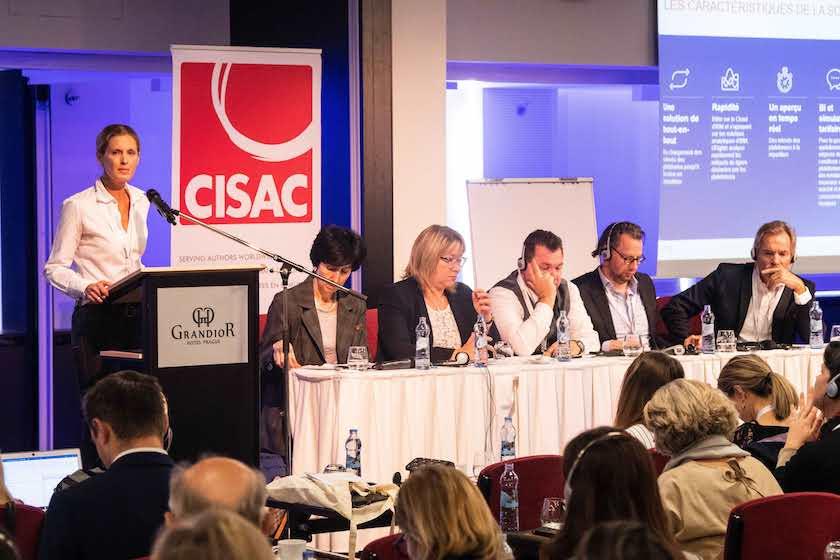
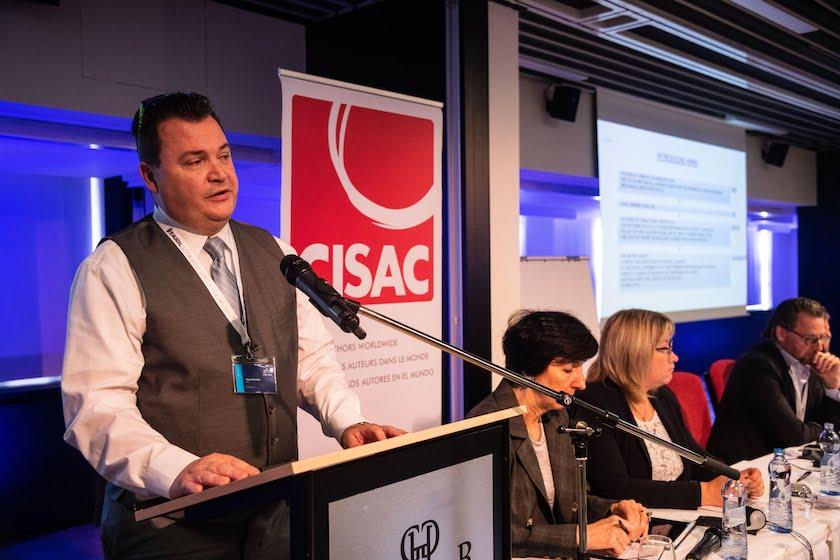
Non-music repertoire CISAC members added their voices in a discussion. Marie-Anne Ferry-Fall, General Director of ADAGP explained the shortcomings of the rights environment in visual arts. Artist protection is weakened by copyright exceptions, other exclusions and a lack of enforcement, especially in the field of exhibition rights.
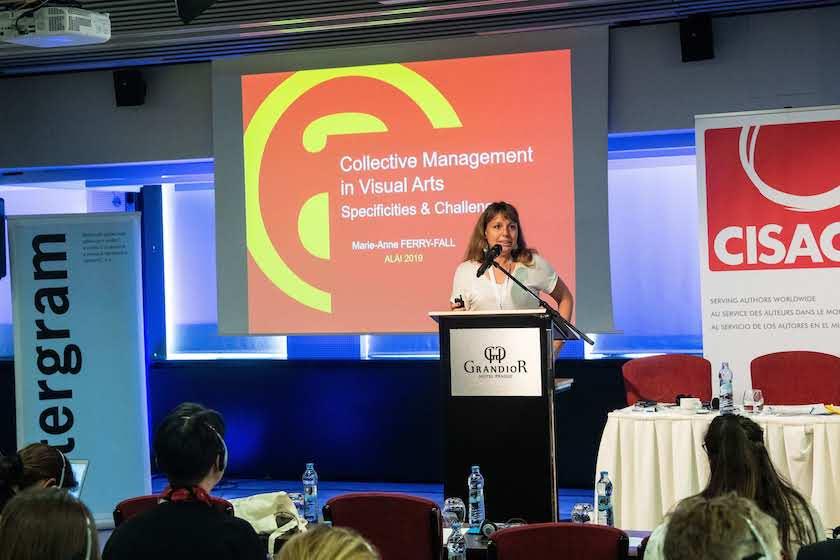
Audiovisual society SACD’s Director of Legal Affairs and AV Contract, Hubert Tilliet, outlined the unique challenges facing creators in the audiovisual sector, where the exploitation rights are commonly assigned to the producer when production agreements are signed. This forces authors into a weak bargaining position, being denied the exploitation of their rights.
The Directive on Copyright in the Digital Single Market brings important benefits in this respect, establishing the key principle that authors, including audiovisual authors, shall receive proportionate remuneration. Tilliet said that that the key priority now is that this principle is effectively implemented.
The conference also looked at other critical changes happening in the legislative environment, notably the recently adopted Directive on Copyright in the Digital Single Market and its implementation across Europe. Adriana Moscoso, Director of Cultural Industries and Cooperation in the Spanish Ministry of Culture, explained the Spanish government’s approach to implementation, which is supportive of authors rights and cultural industries. The Directive strengthens the role of collective management, which is robust and has an important role in building Europe’s internal market, she said.
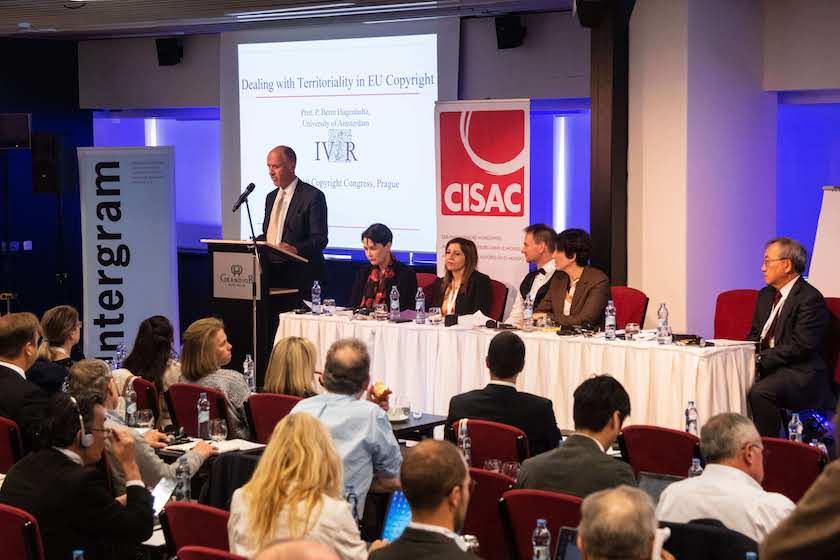
The final plenary discussion examined mandatory and extended collective management. Open University of Catalonia Professor Raquel Xalabarder, author of the Audiovisual Remuneration Study commissioned by CISAC, presented a legal solution to the congress for audiovisual authors. This involves statutory proportionate remuneration rights, in exchange for the transfer of exclusive rights to the producer. It must be inalienable and unwaivable, subject to collective management for all acts of exploitations.
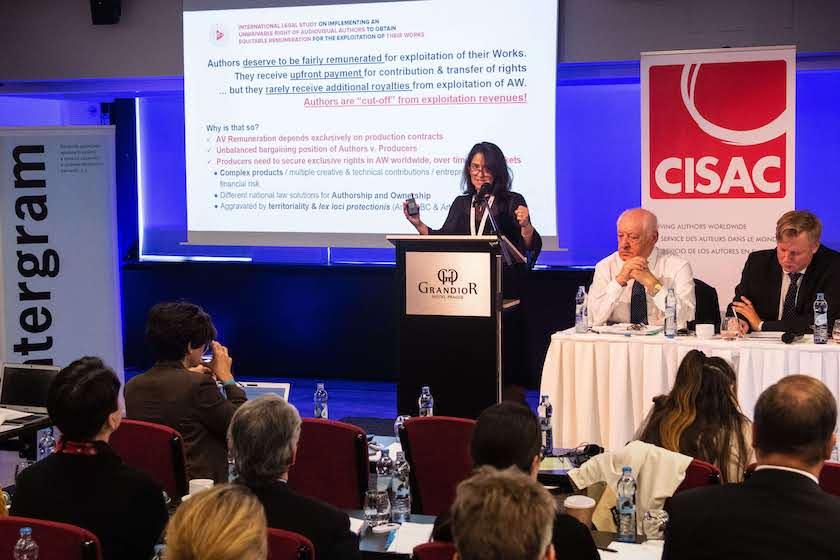
A link to the full programme and all panelists of the 2019 ALAI Congress can be viewed here.
